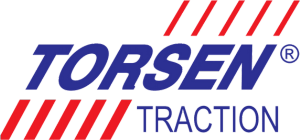Part Two: Previously, we talked about some of the basics of choosing the correct oil for your Torsen differential. Now, can get into a little bit more depth. You may recall that that the Torsen® will operate in whatever oil makes your ring gear happy. However, that is not to say that all oils are equivalent in the eyes of your differential – they’re not. There are a lot of quality aftermarket lubricants out there with a lot of fans that will swear by using them. And that’s great. But be wary of off brand products that you’ve never heard of, or don’t meet some sort of SAE standard. So, again, that’s great, so what would we recommend?
Unfortunately, we aren’t in a position to effectively compare multiple brands of lubricant. It would certainly be interesting to study. Imagine conducting a secret, blind taste test of all the popular brands (Brand-RL, Brand-RP, Brand-Am, Brand-M1, etc) in our lab, and comparing the results. The results would probably be fascinating. But a test like that has a lot of variables and takes a lot of time. In the end, it would still only offer a slice of what factors are important.
Such a comparison would only tell us what offers the “best” differential performance. It would say nothing about secondary effects on the rest of the axle or transmission system. So, it isn’t a real practical endeavor. Most of the testing that we conduct is with oil provided by our OEM customer, for use with their product. I should point out that OE manufacturers conduct extensive testing, using their preferred lube. They validate the entire system with that oil. This should not be overlooked, as the testing is typically quite rigorous. It is, however, a point that a lot of people miss.
For our own R&D work, we use Chevron Supreme LS 80W90 as a “house” oil. That leads me to another point. While a differential like the Torsen Type-2 is happy in whatever good quality oil that you may choose, oil weight (viscosity) comes into play with regards to performance. As I stated earlier, Torsen works by generating internal friction. So, logically, if different oil blends have different frictional properties, that mean they have different influences on the differential’s behavior.
Essentially, the heavier, thicker, or more viscous that the oil is, the better it lubricates (generally). It leaves a heavier film adhered to the surfaces being lubricated. This reduces friction. But, that means that a differential operating in 75W-140 oil will have fractionally less locking effect than the same unit operating in 75W-90. This difference is not night and day – the changes are subtle. But if you’re fine-tuning a race car, it does offer one more knob that you can turn. By the same token, lubricant formulation and additives used have a similar bearing on the matter.
Generally, synthetic lubricants have lower friction properties than conventional, non-synthetic oils do. Synthetic lube may still be preferable if the duty is severe or high temperatures are a concern. Synthetics typically offer superior performance in those areas due to a more durable molecular structure. The overall friction properties of the lubricant are also influenced by additives and modifiers blended in. Clutch type differentials typically need these modifiers. They help to even out the transition from static to dynamic coefficients of friction between the clutch plates. This, in turn, smooths out their operation and reduces chatter. However, it also means that they may slightly lower the overall differential locking performance as well.
Lubricants sold as “limited slip oils” have these additives premixed in. Be aware of this when making a selection. For OEM applications, the validation testing that I referred to above includes extensive vehicle handling and chassis dynamic tests. Consequently, the OEM oil (and differential performance) is matched to the intended handling behavior for that car. So, where does that leave us? Quite simply, here: use a good quality product, one that meets the needs of your ring & pinion gearing. Beyond that, think about what your specific needs are and choose accordingly.
